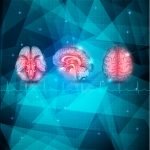Confusing Symptoms With Disease
Getting Clear About Depression and Anxiety
Lauren Deville, NMD
Disclaimer: I am not a psychotherapist. I never intended to deal with depression and anxiety in my practice as much as I do. But, as we all know, a patient’s mental and emotional state is often inextricably tied to her physical health. We can’t ignore it.
When I first started practicing, I assumed that anxiety and depression stemmed primarily from an underlying chemical imbalance, and I treated my patients accordingly. I prescribed biochemical precursors for neurotransmitters that seemed low, such as L-tryptophan or 5-HTP for serotonin, inositol as a second messenger for serotonin, L-tyrosine for catecholamines, B vitamins as cofactors, and the like. When hormones seemed to be the culprit, I’d go that route. For resistant cases, I used neurotransmitter testing.
I still do all of these things, and they are all effective, to a point. But (with the exception of cases where depression stems from pure hormonal imbalance, or a malabsorption syndrome leading to low serotonin production), I have yet to see a single anxious or depressed patient restored to health by these approaches alone. Physical treatments such as these are a Band-aid; in my experience, true healing requires a deeper approach.
Suppression of Trauma Leads to Physical Problems
Women with a history of childhood abuse report physical problems in twice as many body systems as women without a history of abuse, including panic, depression, musculoskeletal pain, vaginal or pelvic disorders, skin disorders, and respiratory illness.1
When no organic cause can be found for these symptoms, the patient is diagnosed with somatization. Over 90% of women diagnosed with somatization disorder have a history of some form of abuse,2 and there is a clear correlation between physical, emotional and sexual abuse and fibromyalgia.3
The point is not that all cases of depression or anxiety necessarily have their root in trauma or abuse, but rather that emotions are no more arbitrary than are physical symptoms. As naturopathic physicians, our philosophy begins with the belief that the body knows what it’s doing, and symptoms are always the best possible adaptations to the environment or circumstances.
In my clinical experience, emotions are usually the same way. Society teaches us that our positive emotions should be expressed, while our negative ones are not socially acceptable and should therefore be suppressed. But if we consider negative emotions to be symptoms that something is wrong, in either our lives or our thoughts, then suppression allows that harmful thought process or situation to perpetuate… and sometimes it allows the physical symptoms that result from that suppression to perpetuate as well. As with any physical condition, true healing of depression or anxiety requires addressing the root issue, not masking it.
Case Study 1
Depression and Suppressed Trauma
AC is a 24-year-old female who presented with crippling fatigue, depression, IBS, abdominal pain, severe diarrhea, frequent URIs, and reflux beginning just after a breakup with an abusive boyfriend. Symptoms waxed and waned for 2 years, until she found out her ex was married. At that point, she was hospitalized, though all labs and imaging were normal. She came to see me 2 days later.
I began by addressing her physical case, treating Candida and anemia, and balancing hormones and blood sugar. I assessed her for food sensitivities, gave both adrenal and specific immune support, and based on her history of fluid loss (diarrhea), I prescribed Carbo veg 200C. Although she improved, her energy and emotions did not completely rebound until a month later, when our follow-up visit focused entirely on EFT. During the interview, we identified core beliefs such as “I don’t believe I am beautiful,” “I don’t believe that God loves me,” “I believe God should have protected me,” and “I believe that men only want me for my body.” We cleared those statements using EFT and prayer, and because she was already a strong Christian, I gave her a list of Bible verses to meditate on daily, describing her identity in Christ. Based on her history of abuse, I also gave her Staphysagria 1M. Three months later, she wrote in a testimonial for me, “I have gone from being weak and constantly fatigued to being able to run a mile every day. My immune system is better, my iron levels are back up, my meals are a concentrated effort in my life, and she has counseled me to bring healing to my emotions and reach deep roots of my physical state.”
Case Study 2
Depression and Suppressed Grief
JC is a 29-year-old male who presented with depression, night sweats, insomnia, increasing fatigue, and weight gain. All symptoms began when he started his work as a border patrol agent, and they had gradually worsened over the last 6 years, during which time 2 of his friends were killed. His diet was pristine, and he acknowledged no other physical symptoms, although I did notice a convulsive movement of the muscles of his eyes throughout the first interview.
I sent him for lab work, which confirmed that a slightly sluggish thyroid was partially to blame for the fatigue and weight gain. I prescribed L-tryptophan to assist with both serotonin and melatonin production, and based on his admission to “silent brooding” and stuffed emotions, as well as nystagmus, light sleep, and insomnia, I prescribed Ignatia 1M. I also suggested he go for counseling, but he declined.
His improvement was remarkable: within 3 days he wrote to me and said, “the two prescriptions that you have me taking are really working. I am sleeping better, no night sweats, and it seems like I am just more emotionally balanced out.” A month later, he said, “I feel a lot better in terms of emotions, not bottoming out, etc. I just feel good.”
Case Study 3
Anxiety and Misplaced Priorities
RB is a 48-year-old male who presented with left-sided chest pain radiating to the right side and constant shortness of breath. He is a manager at a well-known company, and the pain began shortly after an especially stressful weekend of work. He had already been to the ER several times and had a thorough workup from both a cardiologist and a pulmonologist during the year between onset and when he came to see me. All test results were normal.
He described himself as being in a constant state of “overdrive” – he said he never relaxed or had any down time in his life, and he had taken Ephedra for 10 years in order to push himself to his limit. He admitted to perfectionism, and was very fearful about his health, and that his choices had caused irreparable damage. After multiple trials of medications (including lorazepam and trazodone) that only seemed to worsen his symptoms, he also became depressed, after which he was placed on sertraline as well.
Initial treatment consisted only of gathering previous labs, a diet diary, and introspective counseling. I asked him to identify what he wanted out of life, where his sense of purpose came from, and what his most important values truly were. He identified himself as Catholic, although not practicing. He was open to a biblical approach to spirituality, however, and I gave him a list of verses specific to his beliefs, instructing him to memorize and meditate on them whenever he felt himself becoming anxious. We prayed together at the end of the visit.
I was amazed at how improved he was on the first follow-up. He told me he had felt better ever since we prayed together, and that he was going to church, reassessing his priorities, and reprogramming his thoughts with scripture. Although I did not tell him to do so, he had begun to taper himself off of his medications on his own.
Case Study 4
Anxiety and Belief that the Universe is Unsafe
JN is a 21-year-old female who presented with anxiety, depression, multiple food sensitivities, eczema, joint pain, insomnia, and poor word recall. She could not tell me what she was anxious about – she said it could be “whatever comes up,” engaging in a “what-if” cycle that kept her awake at night. She said depression came up whenever her anxiety went too far – she would fixate on physical pain, or replay a situation in her mind in which she felt she had made a poor decision. She described herself as extremely perfectionistic and overly analytical, with a tendency to fixate on thoughts. She is a strong Christian, and at the end of the visit, she admitted that she believed that God was good only in the sense that “whatever God does is good by definition.”
I treated her initially for leaky gut syndrome and sent her for labs, and based on her depression with a tendency to fixate on negative thoughts, I prescribed 5-HTP. We spent the last portion of the visit discussing the scriptural support for the idea that God is good by our definition, and I gave her a handout of verses on that topic, instructing her to memorize and meditate upon them.
Initially she worsened on all supplements, and I received several anxious emails that she was doubled up in pain. I modified the treatment plan accordingly, and encouraged her to expect good things from God. I encouraged her to focus on praise, rehearsing her blessings during her prayer time prior to bringing her requests to God, as this would help her to remember that He had been faithful in the past, and she could expect that He would continue to be faithful in the future.
At her first follow-up, she had a big smile on her face and announced to me confidently that she had “had her last day of anxiety ever!” She told me the anxiety was gone, the depression was almost gone, and she was much better able to tolerate supplements. She said the biggest breakthrough for her was the belief she now held that God was indeed good and trustworthy. This had been the crux of her anxiety.
Coming Out of Suppression
Depression is usually about something that happened in the past. Because of this, in my experience the key to depression is usually grief. Grief is the one sadness that has the power to heal all others.4 It happens when we admit that what happened to us hurt, and we allow ourselves to feel sad about it. When we don’t grieve something that matters deeply to us, the result is either depression, physical ailments, or both.
Anxiety is usually about a fear of something that may happen in the future. Because of this, in my experience the key to anxiety is usually identifying the underlying fear, recognizing it as a lie, and reprogramming the patient’s thoughts with what she recognizes to be truth. Identifying the fear may be relatively easy with more introspective patients, or it may be more difficult, requiring space, silence, Emotional Freedom Technique (EFT), an appropriate homeopathic remedy, or counseling in some cases. Since my background is Christian and many of my patients are either Christian or acknowledge biblical authority, “reprogramming” in my practice usually involves scripture. Those patients who have presented to my practice with similar cases but who are not spiritually inclined have not enjoyed results nearly so dramatic as these.
Although I have had a few cases of anxiety or depression that have been entirely physical in nature, the majority have required integration of mind, body, and spirit to achieve a cure.
 Lauren Deville, NMD is board-certified to practice medicine in the State of Arizona. She received her NMD from Southwest College of Naturopathic Medicine in Tempe, AZ, and she holds a BS in Biochemistry and Molecular Biophysics from the University of Arizona, with minors in Spanish and creative writing. She also writes for ICA Health, teaches college chemistry, writes a weekly column in the Tucson Citizen called “Natural Medicine Tips,” and is working on a fiction trilogy in her spare time.
Lauren Deville, NMD is board-certified to practice medicine in the State of Arizona. She received her NMD from Southwest College of Naturopathic Medicine in Tempe, AZ, and she holds a BS in Biochemistry and Molecular Biophysics from the University of Arizona, with minors in Spanish and creative writing. She also writes for ICA Health, teaches college chemistry, writes a weekly column in the Tucson Citizen called “Natural Medicine Tips,” and is working on a fiction trilogy in her spare time.
References
- Irish L, Kobayashi I, Delahanty D. Long-term physical health consequences of childhood sexual abuse: a meta-analytic review. J Pediatr Psychol. 2010;35(5):450-461.
- Pribor EF, Yutzy SH, Dean JT, Wetzel RD. Briquet’s syndrome, dissociation, and abuse. Am J Psychiatry. 1993;150(10):1507-1511.
- Walker EA, Keegan D, Gardner G, et al. Psychosocial factors in fibromyalgia compared with rheumatoid arthritis: II. Sexual, physical, and emotional abuse and neglect. Psychosom Med. 1997;59(6):572-577.
- Cloud H, Townsend J. How People Grow: What the Bible Reveals About Personal Growth. Grand Rapids, MI: Zondervan; 2001.










